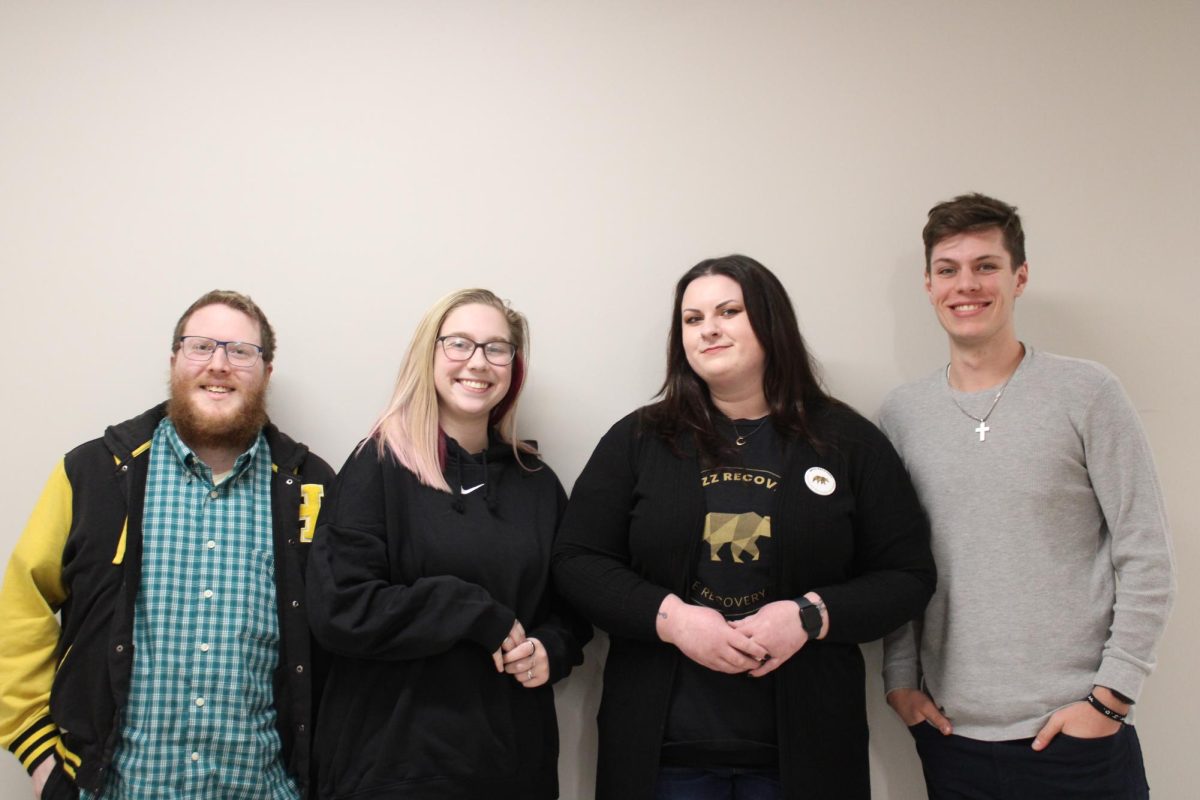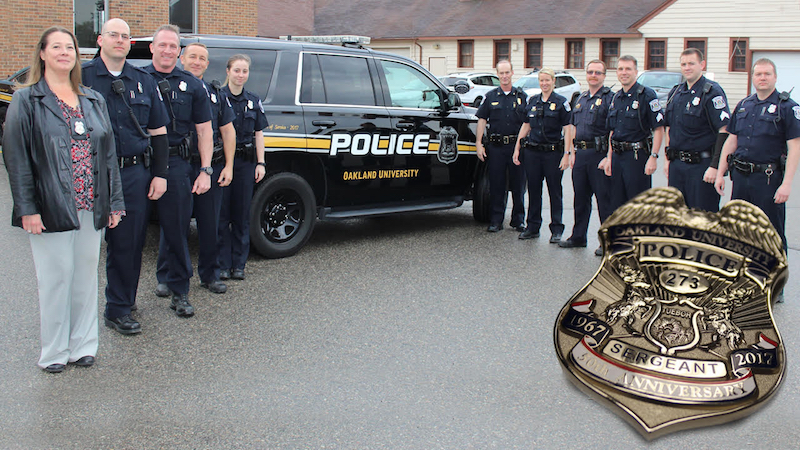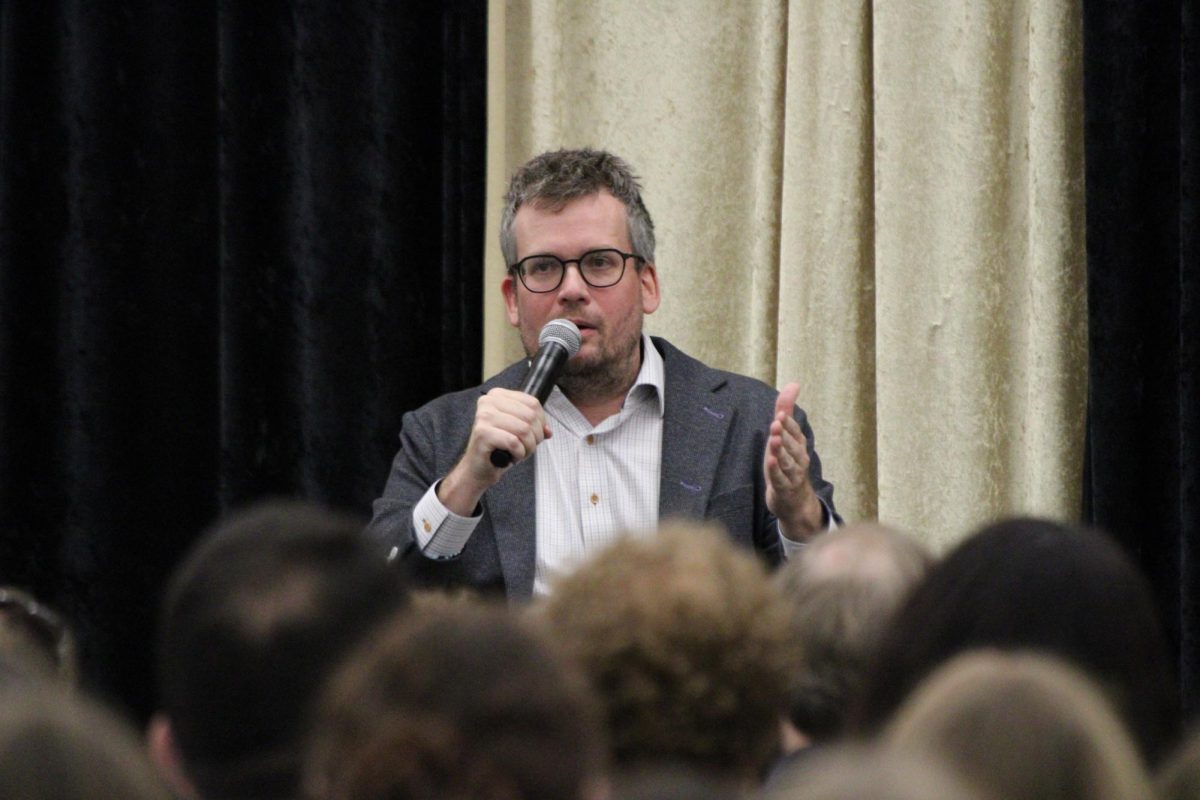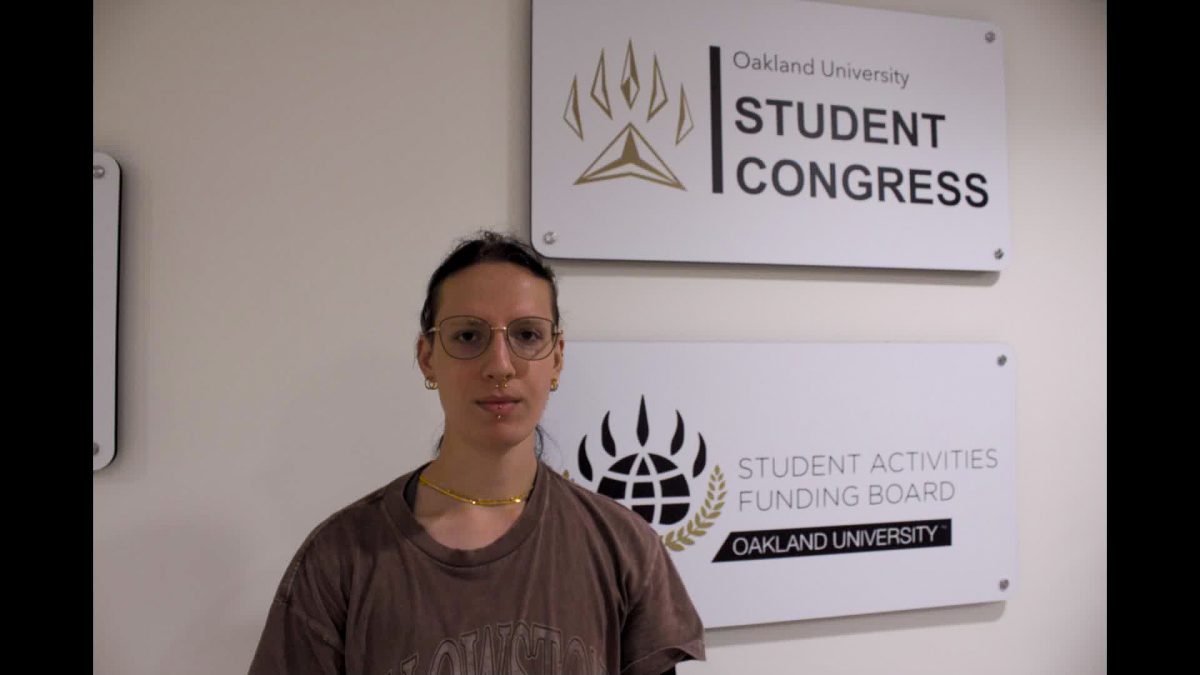At Oakland University, Grizz Recovery (GR) is creating a safe space for students to confront addiction, embrace sobriety and build a supportive community — all without the pressure to conform to college drinking culture.
Grizz Recovery, established in 2016, initially aimed to support students through Alcoholics Anonymous, and meetings similar, is a Collegiate Recovery Program (CRP) on OU’s campus. GR is registered with the Association of Recovery in Higher Education, focused on providing a community to support students in their substance use recovery.
The Jamie Daniels Foundation is the establishing and primary funder of GR. This foundation is driven to affect change by providing hope and support to those struggling with substance use disorder.
GR has a private space on campus for its members, affectionately called the Cub-House. During the pandemic in 2020, the organization unfortunately saw a decline which caused the organization to fizzle out. A new coordinator was hired in 2024, and GR is making a comeback.
Now, GR is under the leadership of Sarah Super, a dedicated coordinator with a background in psychiatric nursing, and passionate student leaders like Alaina Humphreys and Jacob Potter.
“Collegiate Recovery Programs are critical,” Super said. “Statistics show that 72% of students in recovery choose their school based on these programs. For a third of them, it’s the difference between staying in school or dropping out.”
Collegiate Recovery Programs provide essential support and education for young adults navigating newfound freedom, helping them build a community that fosters understanding and reduces stigma around addiction. These programs promote visibility and acceptance by sharing experiences and creating a welcoming environment for those seeking help.
Humphreys, student ambassador and intern of GR — also a junior majoring in psychology — joined the group after transferring to OU. Sober for six years, she was yearning for a community which she could feel aligned with.
“I wish I had something like this when I first got sober,” Humphreys said. “It’s important to show people that recovery doesn’t mean you can’t have a fulfilling college experience.”
Jacob Potter, GR student ambassador, and a senior studying psychology, emphasizes the misconception that you can’t have fun sober — which he says is simply untrue.
These organizations want students on campus to know that with support from OU, these programs reduce stigma and provide a welcoming space for all students. GR aims to be a “household name” at OU that the campus community takes pride in and recoverees feel comfortable with.
Having a supportive community for students at all stages of addiction — whether they are in recovery, struggling with relapse or considering sobriety–- is a factor that this organization emphasizes.
“There is no accurate picture of an addict. It could be anyone,” Jacob said.
The organization encourages students to examine the root cause of their trauma and show them they don’t need to turn to drugs.
Many students struggle to cope with distress, often turning to substances as a way to numb their emotions. This temporary relief can lead to a dangerous cycle of addiction and leaves the underlying issues unaddressed. Without proper support, this pattern of substance abuse can disrupt the lives of students academically, socially and personally.
“If you don’t accept what is there, it becomes denial,” Potter said. “I had to accept that I have a disease I cannot control on my own. I’ve grown more in three months with Grizz Recovery than I have in five years.”
Through weekly recovery meetings, wellness meetings, and private GR sessions, the organization works to create an environment where students feel safe discussing their struggles.
“It’s about providing a judgment-free zone. We want students to know they are not alone,” Super said.
While substance abuse may be decreasing in some areas such as drinking less for Gen Z, other challenges are still faced — for example, the rise of marijuana use.
According to the Cleveland Clinic, studies show that Gen Z is drinking less alcohol, with studies showing a steady decline in consumption compared to previous generations. Other factors include mental health awareness, healthier lifestyles and an increased education on the risks of substance abuse.
Concerns still remain as binge drinking persists, and increased use of cannabis has been seen, which may be in some ways replacing alcohol — highlighting a shift in substance use patterns, and the need for continued awareness and support.
“Many think smoking weed is harmless, but it can have serious psychological effects, especially on a developing brain,” Potter said.
Humphreys shares her own experience with addiction, which began with using cannabis in high school and escalated to harder drugs such as cocaine. Her inspiring journey to recovery was challenging, involving jail time, probation and lots of rejection.
“I had been in jail for two weeks after being sentenced for probation violation, I cried every day from the time I woke up to when I fell asleep,” Humphreys said. “After two weeks of crying, I became desperate to find something, anything, that was going to make me feel like I had a choice different from a life of addiction.”
Humphreys recalls her spiritual revelation while being in jail, with whom she calls God, where she experienced an overwhelming rush of emotion, as a powerful presence spoke to her, allowing her to envision what a God to her would be: loving, compassionate and non-judgmental. The next morning, she felt renewed and protected, embracing the idea of unconditional love.
She gives lots of credit to God in her recovery. Without the strength provided to her by her newfound faith, she would not have the confidence to reach for things that used to feel so far away. She is currently engaged and owns a home, which are things she says would have been unattainable without walking the path of recovery.
“Recovery has changed my life in every conceivable way,” Humphreys said. “I’ve gone from dropping out of college due to addiction to returning sober as a straight-A student.”
Humphreys lives out the principles of the twelfth step that Alcoholics Anonymous teaches in her everyday life — sharing the message of recovery —Through her work in GR. She witnesses others bloom, which gives passion and purpose to her recovery.
Given the obstacles Humphreys faced throughout years of addiction, being able to find sobriety and have a joyful life — including the opportunity to lead GR — is a full-circle moment.
The opportunity to be a voice for GR has been one of Humphreys’s proudest moments. She’s grateful to engage with others who have similar experiences in addiction. She hopes to light a candle for them and guide those who are struggling to the resources GR provides.
The impact of this organization goes beyond the individuals involved. They are helping to shift the narrative around addiction on campus, and aiming to help as many people as possible, even if it is just one.
Grizz Recovery welcomes anyone considering sobriety to reach out directly at [email protected].
For students looking to explore a college experience abstaining from substances but who may not identify with addiction, Super advises checking out Students for Recovery (SFR). The new student organization works to decrease the stigma of addiction and strives to promote healthy alternatives.
“We want anyone on campus struggling with addiction to know that they are not alone,” Humphreys said. “There is a community here for you who won’t judge you. We have been where you are, and we are here to help.”










Susan Griffin • Feb 6, 2025 at 9:32 PM
It is wonderful to see such an awesome group helping others. Each person helped is a blessing in itself. And so happy to see Alaina helping others, by sharing personal experiences. Keep up the good work.